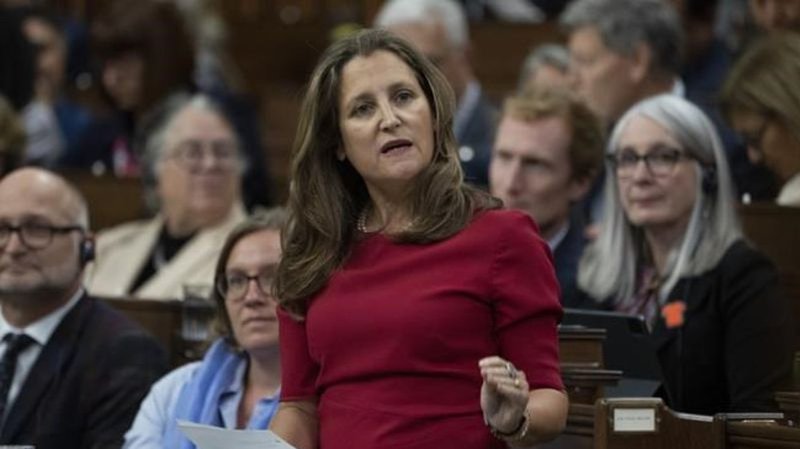
Fiscal update, trucker testimony at Emergencies Act inquiry : In The News for Nov. 3
In The News is a roundup of stories from The Canadian Press designed to kickstart your day. Here is what’s on the radar of our editors for the morning of Nov. 3 …
What we are watching in Canada …
Finance Minister Chrystia Freeland will table her mid-year budget update in the House of Commons later today, and it will mirror elements of recent legislation passed in the United States.
The fall economic statement is expected to focus heavily on driving investment to Canada’s clean energy industries in response to new American tax incentives signed into law last summer.
